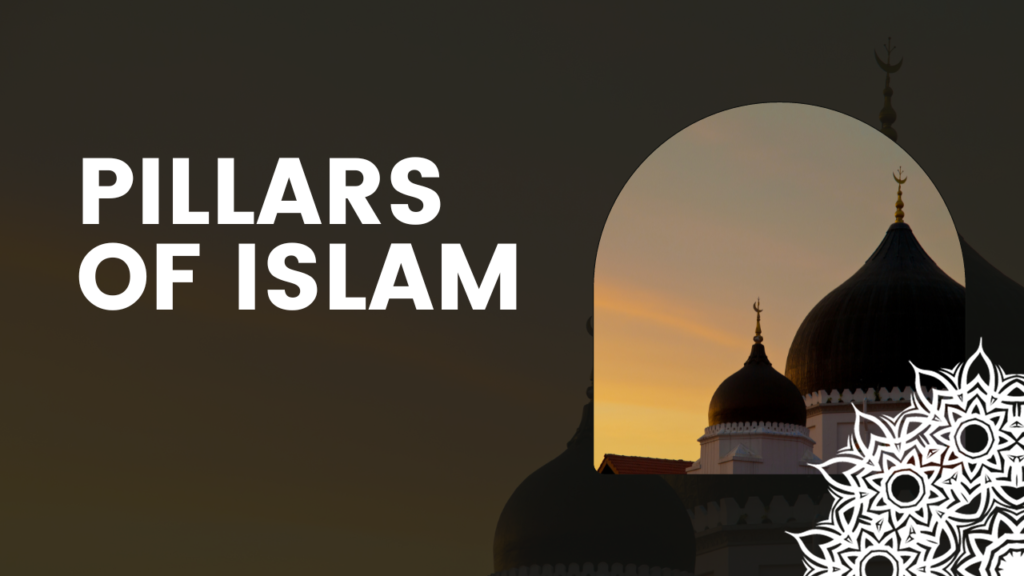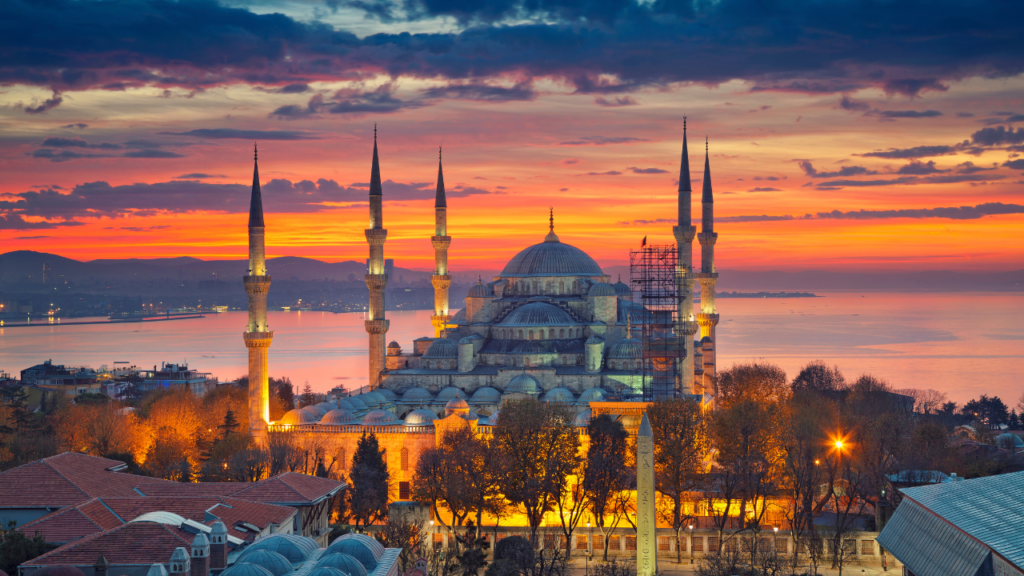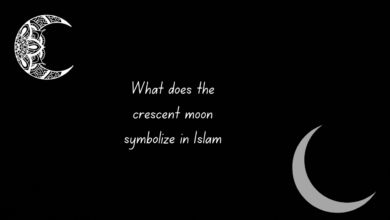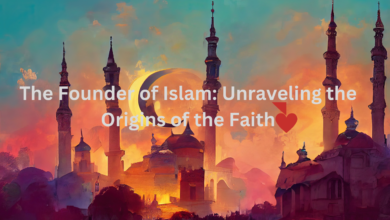Which is not one of the Five Pillars of Islam?
Exploring Islamic Faith: Beyond the Five Pillars

Which is not one of the Five Pillars of Islam?
The Five Pillars of Islam are the five fundamental acts of worship and practice that are considered essential for all Muslims. They are Shahada (faith), Salat (prayer), Zakat (charity), Sawm (fasting), and Hajj (pilgrimage).

Introduction
Islam, one of the world’s major religions, is built on a foundation of faith, devotion, and a set of core principles that guide the lives of its followers. These principles are collectively known as the “Five Pillars of Islam.” They represent the fundamental acts of worship and practices that every Muslim is expected to adhere to in order to lead a righteous and fulfilling life. However, among the many questions that arise when discussing Islam is one that may seem elementary, yet holds significant importance: What is not one of the Five Pillars of Islam?
The Five Pillars of Islam
Before delving into the answer to this question, let’s briefly outline the Five Pillars of Islam:
- Shahada (Faith): The first pillar is the declaration of faith, known as the Shahada. It is the simple statement, “There is no god but Allah, and Muhammad is the messenger of Allah.” This declaration is the cornerstone of Islamic belief.
- Salat (Prayer): The second pillar is Salat, or the act of daily prayer. Muslims are required to pray five times a day facing the Kaaba in Mecca. These prayers serve as a direct link between the worshiper and Allah.
- Zakat (Charity): The third pillar is Zakat, which is the obligation to give to those in need. Muslims are required to give a portion of their wealth to the less fortunate to promote economic equity and social welfare.
- Sawm (Fasting): The fourth pillar is Sawm, or fasting during the month of Ramadan. Muslims abstain from food, drink, and other physical needs during daylight hours as an act of self-discipline, self-reflection, and spiritual growth.
- Hajj (Pilgrimage): The fifth pillar is Hajj, the pilgrimage to the holy city of Mecca. Every Muslim who is physically and financially able is required to undertake this pilgrimage at least once in their lifetime.
So, what is not one of the Five Pillars of Islam?
The answer to this question is clear: Belief in the afterlife and the concept of heaven and hell are not considered one of the Five Pillars of Islam. While these beliefs are undeniably important aspects of Islamic theology, they are not part of the Five Pillars.
Also Check
- All Souls’ Day: A Day of Reflection for Muslims
- What does all hallows eve mean?
- Why is Friday important for Muslims?
- How many children did Prophet Muhammad (PBUH) have?
Islamic Beliefs Beyond the Five Pillars
In addition to the Five Pillars, Islam encompasses a broad array of beliefs and principles that guide the lives of its followers. Among these are the beliefs in:
- The Day of Judgment: Muslims believe in the Day of Judgment, where individuals will be held accountable for their deeds in this life. Good deeds will be rewarded with entry into paradise (Jannah), while bad deeds will result in punishment in hell (Jahannam).
- Angels and Prophets: Muslims believe in the existence of angels and accept various prophets, with Muhammad being the final prophet. Prophets are revered as messengers of Allah and are central to Islamic faith.
- The Quran: The Quran is the holy book of Islam, believed to be the literal word of Allah as revealed to the Prophet Muhammad. It serves as the ultimate guide for Muslims, containing moral, ethical, and legal guidance.
- Qadar (Predestination): Muslims believe in the concept of predestination, which means that everything that happens in the universe is under the divine will of Allah. However, humans still possess free will and are responsible for their choices.
Conclusion
In summary, while the Five Pillars of Islam represent the core practices and acts of worship in the religion, belief in the afterlife, heaven and hell, angels, prophets, the Quran, and the concept of predestination are essential components of Islamic theology and belief but are not counted among the Five Pillars. Understanding this distinction helps to clarify the foundational elements of Islamic faith and practice, providing insight into the rich and diverse world of Islam.

FAQs about Which is not one of the Five Pillars of Islam?
What are the Five Pillars of Islam?
The Five Pillars of Islam are the five fundamental acts of worship and practice that are considered essential for all Muslims. They are Shahada (faith), Salat (prayer), Zakat (charity), Sawm (fasting), and Hajj (pilgrimage).
What is Shahada, and is it one of the Five Pillars of Islam?
Shahada is the Islamic declaration of faith, where a person bears witness that there is no god but Allah, and Muhammad is His messenger. Yes, Shahada is one of the Five Pillars of Islam.
Is Jihad one of the Five Pillars of Islam?
No, Jihad is not one of the Five Pillars of Islam. While Jihad is an important concept in Islam, it is not considered one of the Five Pillars. The Five Pillars are specifically Shahada, Salat, Zakat, Sawm, and Hajj.
What is Salat, and is it one of the Five Pillars of Islam?
Salat refers to the ritual prayers performed by Muslims five times a day. Yes, Salat is one of the Five Pillars of Islam.
Is Charity (Zakat) one of the Five Pillars of Islam?
Yes, Zakat, which involves giving a portion of one’s wealth to those in need, is one of the Five Pillars of Islam.
What is Sawm, and is it one of the Five Pillars of Islam?
Sawm refers to fasting during the month of Ramadan, from dawn to sunset. Yes, Sawm is one of the Five Pillars of Islam.
Is pilgrimage (Hajj) one of the Five Pillars of Islam?
Yes, Hajj, which is the pilgrimage to the holy city of Mecca, is one of the Five Pillars of Islam.
What is the significance of the Five Pillars of Islam?
The Five Pillars of Islam are essential acts of worship and practice that help Muslims demonstrate their faith, devotion, and commitment to Islam. They provide a framework for a Muslim’s religious life and are considered obligatory for all practicing Muslims.
Are there any additional acts of worship or duties in Islam apart from the Five Pillars?
Yes, there are other important aspects of Islamic practice, such as seeking knowledge, maintaining good character, performing acts of kindness, and engaging in acts of worship beyond the Five Pillars, but the Five Pillars are the core foundation of Islamic practice.
Can a person be considered a practicing Muslim if they do not adhere to the Five Pillars of Islam?
Generally, to be considered a practicing Muslim, one is expected to adhere to the Five Pillars of Islam as they are fundamental to the faith. However, the level of adherence may vary among individuals, and religious observance can differ from person to person.






